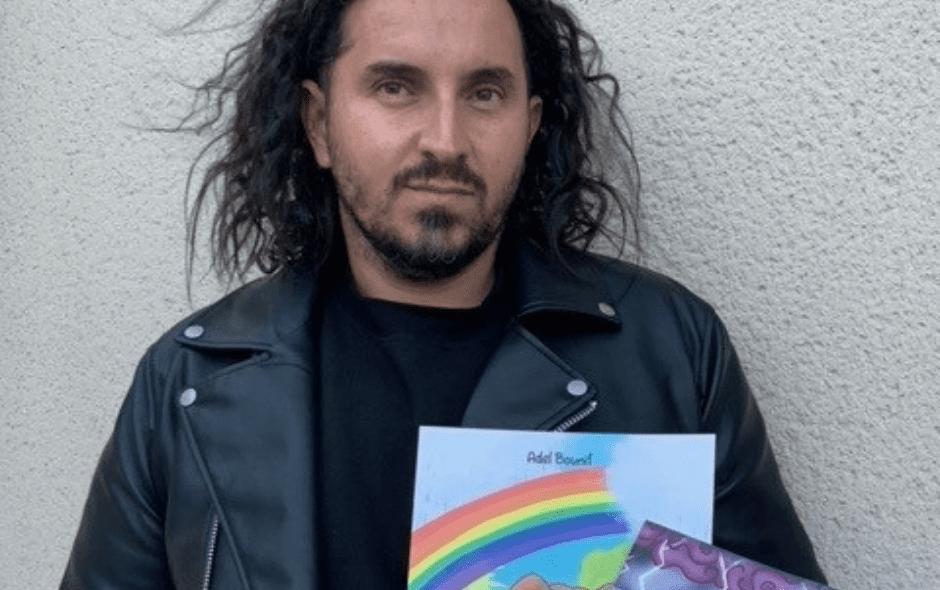Adel’s daughter has been living with Dravet Syndrome all throughout her life.
Dravet Syndrome is a rare form of severe epilepsy which sees frequent, treatment-resistance seizures, and long-term conditions including learning disability, autism, mobility problems and developmental delay.
Adel shares how Dravet Syndrome has affected his daughter and how he wrote a book to help educate and raise awareness about the condition.
Can you tell us a bit about how your daughter was diagnosed with Dravet Syndrome?
My daughter was one year old when she was diagnosed with Dravet Syndrome. She had her first seizure at nine months.
But at the beginning she was quite normal because it is quite the same for people with Dravet Syndrome.
Then it was a nightmare because her seizures were so so frequent that we were so many times in the emergency centre and so now, it seems it sounds better, but at the beginning 1/2 until seven years old, it was awful.
What challenges has your daughter faced since being diagnosed with Dravet Syndrome?
Well, she has a lot of development delay like language delay.
Also, she has language speech delays and she cannot speak. She uses pictograms to help to speak to people.
She’s always repeating the same words and the same expressions. She has sleeping issues. When she was a baby, she didn’t sleep. She didn’t have rest at all.
Now it’s quite better. However, most of the time, all the seizures are happening during the night. So, it’s quite complicated for us also to manage it because we are so tired now. So, it is quite complex. Dravet Syndrome is not very well known.
Has your daughter received support from her teachers and school as well?
At the beginning, she went to let’s say a normal school because we didn’t know what she had but she was accepted in the normal schools. She had a personal assistant which stayed next to her during school.
But it was complicated because in France you had to do a lot of administration. It’s very long to wait for the results. So sometimes she didn’t have the chance to go to school because she didn’t have a personal assistant.
The management of the school didn’t accept her because it was too risky for them to accept an epileptic child. So it was like all this stigma, you know, around the epilepsy, I had to deal with.
We say that epilepsy is more than seizures. Do you feel this has been your experience?
A lot of treatments and all these medications have side effects and it affects her everyday life because she cannot do every everything like a normal child.
She has to take a medications three times a day, every six hours, every day. She has four medications and they can have side effects.
So, it’s very complicated, but our challenge is that she doesn’t understand at all what is happening because she is 12 years old. But according to the psychologist she’s only two years old, you know. She’s like a baby.
She doesn’t understand anything. She’s always smiling. She’s always happy. I hope. I hope she’s happy. But she seems to be happy.
She’s always smiling. And this is the most important for her. She doesn’t imagine what we are dealing with.
Can you tell us a bit about the book that you wrote?
The book in English is called epilepsy, the invisible pain.
I’m very happy to say that my book is travelling everywhere in Canada, USA, New Zealand, Japan and China.
You can’t imagine how that makes me feel because I’m only a dad. I’m not an author, an expert or doctor. I’m only telling my story in this book.
All this positive feedbacks I received in Facebook, in X, in Instagram. This is so encouraging. It gives me a lot of strength, a lot of courage to go on.
What would you say to someone who has been a newly diagnosed with epilepsy or parents whose child has been recently diagnosed?
Well, I will say that you have to be very patient because first you have to wait for the results. You have to be patient to go to the doctor, you have take your time to discuss with your partner.
When you have a disabled child, it can make partners separate. So, communication is very important.
You know you have to communicate with your family. You don’t have to stay alone because staying alone can bring a very bad situation.
When I received the news that my daughter had Dravet Syndrome, I felt depressed and burned out.
When I heard there was no cure and no medicine that could help it felt like I was hit by an earthquake.
The first thing I would say to parents is to ask for help. Look on the internet for an epilepsy organisation and don’t be alone.
Right now, I’m going to schools to educate children about epilepsy and the stigma linked to this condition.
In my city, the children are so positive about it. You know, they are not judging, they are open-minded, unlike some adults.
They have many questions and it’s very interesting.
More information about Dravet Syndrome can be found at the Dravet Syndrome UK website.




